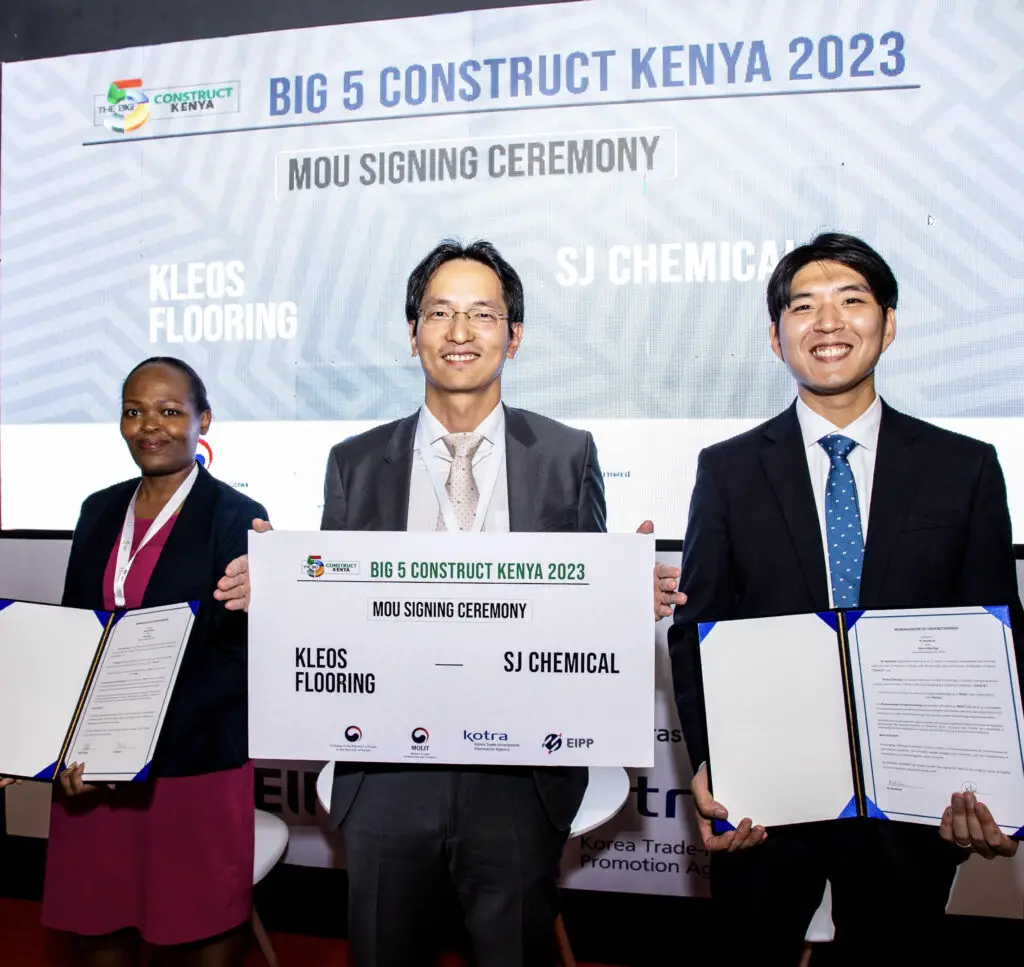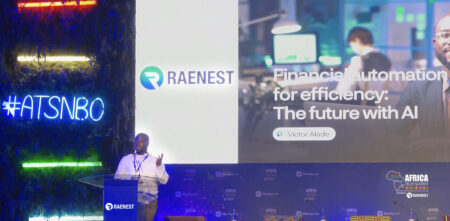- Korea’s smart tech firms have set sights on Kenyan market to provide smart technologies as Kenya steps up its smart city game.
- Three smart tech Korean companies have signed MoU with Kenyan firms to bolster Kenya’s aspirations of becoming regional ICT hub.
- The trend-setting firms are among 15 companies showcasing at the Korean Pavilion, seeking to strengthen Kenya-Korea business ties.
Korea’s smart tech firms are seeking entry into the Kenyan market to provide intelligent technologies as Kenya gears to step up its smart city investments.
Speaking during the unveiling of the Korean Pavilion at the 2023 BIG 5 Construction Roadshow in Kenya, Korea Trade Development Agency (KOTRA) managing director Eom Ikhyun said three Korean companies have signed a Memorandum of Understanding (MoU) with Kenyan companies.
Korea GT has signed an MoU with SONVAR Chemicals, while POQUTEC has struck a deal with Regal Equipment. Further, SJ Chemical has signed an MoU with two Kenyan Companies Panafrican Business Enterprises (PABE), and Kleos Flooring.
Korean firms eye Kenya’s energy sector
The trend-setting companies are among the 15 companies showcasing at the Korean Pavilion, seeking to strengthen business ties with Kenyan counterparts. Overall, the deals seek to bolster Kenya’s aspirations of becoming the digital and ICT hub of East Africa.
“The companies have brought forth technologies that are the building blocks of the smart, sustainable cities of tomorrow,” Eom explained.
The technologies introduced by Korean companies include smart construction supervision systems, energy management systems, traffic safety systems, and water purification systems that can realize sustainable development in smart city projects.
Kenya’s Konza Technopolis, to which these technologies will be applied, is strategically positioned to present superior standards of smart cities across Africa.
Other Korean companies showcasing include Hansol Homedeco, Jchem, SP Solled, Raum Architecture, Kevin Lab, Samsung, Kevin Lab, Kumkang Kind, Posco International, Geogrid, Teraenergy, and Wise – Bridge, among others.
The Korean government has been working closely with the Kenyan government in digital and ICT sector since 2008. Policymakers from both countries have been focusing their efforts in developing the Konza Development Authority and Konza Smart City. These initiatives are part of a broad plan to enhance Kenya’s position as a digital and ICT center in East Africa.
Read also: Nigeria’s smart city dream gets $200M boost from Afreximbank
Konza smart city
“The Korean government is laying the groundwork for Kenya’s Konza Smart City Development project through the Economic Development Experience Sharing Project (KSP) and the Economic Innovation Partnership Program (EIPP), and continues business cooperation by operating a smart city cooperation center. In September, it successfully completed the second phase of the EIPP project,” South Korea Ambassador YEO Sungjun said.
In addition, YEO revealed that the Kenya Institute of Science and Technology (Kenya-AIST) so-called ‘Kenya KAIST’ project, which began with EDCF funds from the Export-Import Bank of Korea, will be completed in March 2024. The government of South Korean plans to accelerate the Konza DMC construction project following the Kenya KAIST project.
Kenya has been ranked fifth across in the continent in the IMD Smart City Index 2023 and 131 globally.
Kenya-Korea investment relations
In May, Kenya entered into a strategic agreement with the Korea Trade Centre, the commercial arm of the Korean Government, to bolster Kenya’s smart infrastructure development.
The partnership covers several key areas of focus, including the creation of a master plan for smart cities. This plan will serve as a guiding framework for the development of five designated digital cities endorsed by President William Ruto, which include Lamu, Dongo Kundu, Athi River, Sagana, and Naivasha.
Furthermore, this Kenya-Korean collaboration will facilitate the cooperative effort to establish a smart driving licensing system. This system will form the foundation for a comprehensive transportation network and smart mobility solutions that complement the urban functions of Konza smart city.
Notably, the pact includes participation from private companies, such as Kumkang East Africa Limited, a subsidiary of South Korea’s Kumkang Kind specializing in Aluminum formwork building systems, as well as construction firms EPCO Builders and Unity Homes.











